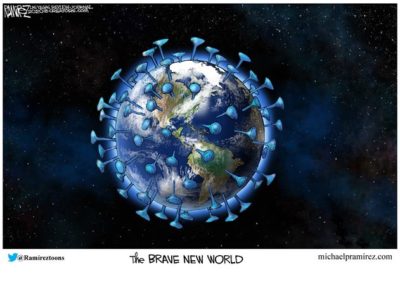From March 15th, days after the government restrictions went into crisis mode to May 9th, the latest reporting date at the NHES website, approximately 139,400 NH residents became unemployed. Based on our February workforce of about 780,200, that is just under an 18% unemployment level.
Related: Judge Rules Ohio’s COVID Response is Impermissibly Arbitrary, Unreasonable, and Oppressive
The Great Depression unemployment rate peaked nationally at 25%.
What is it going to take to get our economic health back?
There is a movement to drive consensus-thought towards the belief we must have a vaccine for COVID-19 before the economy can recover. After decades of development, flu vaccines are often less than 50% effective. The fastest the United States has ever delivered a vaccine was four years for the Mumps.
We cannot wait for a vaccine, even if the FDA keeps its promise to fast-track vaccine development. And, “it is impossible to overstate the short, medium, and long-term harm to people’s health with a continued shutdown,” according to over 500 physicians who recently wrote to the President.
The good news is that we probably don’t need a vaccine for the economy to recover. I expect a Nike swoosh recovery with the slope of the “swoosh” increasing as events occur.
We are still a nation of individuals. The vast majority voluntarily shut down because we believed that social isolation would prevent ICU and other hospital beds from being overwhelmed. We were told there was a viral Armageddon unleashed upon us, and we responded. As people go out and about, enjoying the natural benefits of human interaction, others will observe that the grass is greener on the freer side of the fence. Success will beget success.
The data support an optimistic perspective. The measure of contagiousness (R0) in all but two states indicates the disease is in decline and trending towards dying out.
Increasingly states are eliminating their shackles to allow a freedom-loving nation to return to normal. Business activity will pick up once the government no longer is holding our small businesses in check.
Existing medications and combinations are being evaluated to determine if they are effective against this new virus. New remedies are being explored. The genius of the American pharmaceutical industry has been unleashed.
Meanwhile, other approaches are being explored, such as antibody treatments, which may bear fruit. And yes, if a vaccine is developed and sufficiently effective, that will help as well.
Our legislatures could create incentives for economic activity by providing Tort Immunity protection so that businesses that have tried to do their best in an environment complicated by scientific ignorance. Negligence is measured against the standard of what an ordinary and reasonable person would have done. Legislatures can and should define that standard. We’ve been acting with unavailable science to drive each decision. How does a nation of 300 million behave in chaos? What is reasonable to one person is not to another. There is no standard of reasonableness.
To get fallen small businesses on their feet, the federal Small Business Administration could support a program much like the GI Bill after WWII. In the post-war era, millions of men flooded the market after putting their lives on hold to fight. Small businesses have been gut-punched while Walmart, Target, Home Depot, and other huge corporations have been allowed to make money. United States small businesses employed 58.9 million people, or 47.5% of the private workforce, in 2015. According to the Federal Emergency Management Agency (FEMA), almost 40 percent of small businesses never reopen their doors after a natural disaster. This pandemic may have a more significant impact than that.
And last but not least, the media could pivot and start sharing the success stories instead of stoking fear, uncertainty, and doubt. They need to end their “Summer of the Shark” reporting style.
John Stossel described the Summer of the Shark in his book “Give Me a Break”:
“Instead of putting risks in proportion, we [reporters] hype interesting ones. Tom Brokaw, Katie Couric, and countless others called 2001 the “summer of the shark.” […] In truth, there wasn’t a remarkable surge in shark attacks in 2001. There were about as many in 1995 and 2000, but 1995 was the year of the O.J. Simpson trial, and 2000 was an election year. The summer of 2001 was a little dull, so reporters focused on sharks.”
The media’s greatest power is when it decides what NOT to cover. They would serve a public purpose highlighting the successes across the country, so the path forward is highlighted.
ByNH State Rep Jess Edwards (R-Auburn)
Ways and Means Committee


